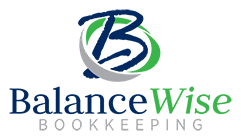DIY Bookkeeping Support
For business owners on a budget who want to do it themselves.
- Reconcile credit card and bank statements
- Maintain data feeds into your accounting software file
- Enter any complex journals for transactions you are unable to process yourself
- (3) 30-minute online training sessions
- Separate upfront fee – this is necessary for a client to choose DIY Bookkeeping Support
- Training sessions are recorded in Zoom with client
- Recordings emailed to client in a video file for future reference
Are you a do-it-yourself type of person, or not quite ready for your own bookkeeper? Is something wrong with your file but you don’t what or where to look? Are you questioning whether you are doing things the right way? The answer to these questions and the ones that follow will tell you whether or not you could use some DIY Bookkeeping Support.
Do your numbers look off and not make sense? Are you using the software properly or completely?
After a thorough review of your accounting software and workflow process, DIY Bookkeeping Support provides a checklist/to-do list of what is wrong and what needs to be fixed, along with recommendations for bookkeeping best practices and time-saving adjustments, such as 3rd party applications that integrate with your accounting software.
An efficient DIY bookkeeping support strategy provides peace of mind with reassurance that nothing is missed, allowing you to budget better, enhance cash flow predictions, prevent late payments, and maintain vendor confidence with on time payments.
Companies without formal, clear, and precise written policies in place that prescribe when bookkeeping support is warranted, the point at which to raise the white flag, so to speak, can find their books an unbalanced mess quickly, leading to insufficient funds, late payments going out, late invoices being sent, and even IRS penalties for late tax payments.
No company can afford to waste their financial resources. There are strategies for optimizing your DIY Bookkeeping to make your money work for you.
- Chose accounting software that meets your needs so you will actually use it.
There are many options when it comes to accounting software, and they all have free trial periods.
- If you are on a tight budget: Try Wave
- If you just need something simple for invoicing: Try FreshBooks
- If you have prior bookkeeping or accounting experience: Try QuickBooks, Xero, or Sage
- Record all financial transactions, both inflows and outflows
- Revenue every time a payment is received
- Expenses every time a payment is made
- Prepaid expenses such as insurance
- Recurring payments such as gym membership and subscriptions
- Owner’s Draw every time a transfer is made to a personal bank account
- Transfers to a separate business account
Do not forget to record the following:
- Quarterly self-employment taxes, if applicable
- Quarterly sales tax payments
- Payroll tax liabilities
- Payroll expenses
DIY Bookkeeping Support means more accurate up-to-date books, a smoother tax season, and more time to focus on growing your business.
Established DIY Bookkeeping practices can increase a company’s profit preventing late fees and penalties. If your company lacks them, outsource your DIY Bookkeeping Support to a company that has them.
